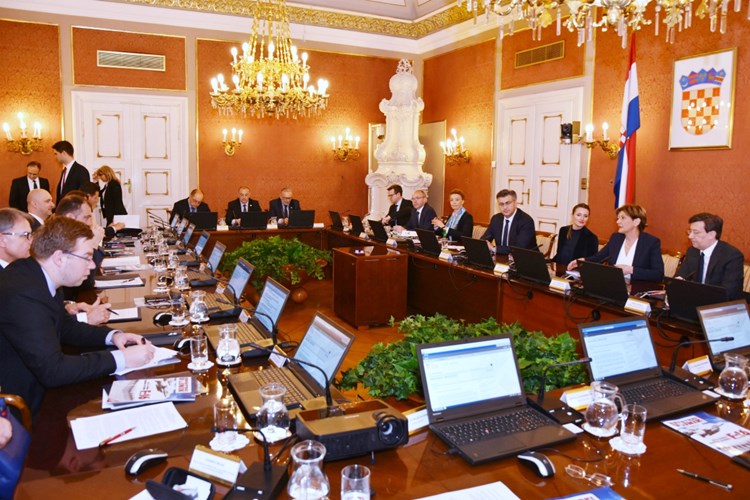


Late last year the government adopted guidelines for the promotion and implementation of the active employment policy for 2018-2020, including grants for first-time employees and interns which as of this year can be awarded not just to employers in the real sector but also to public services in the health, education, social welfare and culture sectors Slightly more than 829 million kuna has been secured from the state budget for this purpose and 385.5 million kuna from EU funds, and 30,430 people will be covered.
Labour and Pension System Minister Marko Pavic said that last year Croatia had recorded the third highest increase in the employment rate in the European Union, of 3.8 percent, adding that the country had 60,000 more employees in the last quarter of 2017 than at the same time in 2016.
He also noted a rapid decrease in the unemployment rate, saying that some 166,000 people were currently unemployed and that their number was expected to fall below 150,000 before the summer. The youth unemployment rate has been halved to about 20%, he added.
Pavic said he was also glad about a 40 percent fall in the number of applications for employment in the public sector and an increase in the number of grants for employment in the private sector, where the government covers 50 percent of the wage. He also noted that the number of applications for self-employment has more than doubled.
The government adopted a conclusion on providing financial aid to the Croatian National Council in Serbia to ensure adequate offices for the Hrvatska Rijec publishing house in Subotica.
The Croatian National Council is the umbrella organisation of the Croatian minority in Serbia. It is the (co-)founder of two key institutions in the field of culture and information: the Institute for Culture of Croats in Vojvodina and the Hrvatska Rijec publishing house.
Foreign and European Affairs Minister Marija Pejcinovic Buric said that this would help the Croatian minority in Serbia to preserve their identity. "We want to build good relations with Serbia, and one of the important bridges for the future relationship is the position of our minority there," she said.
The government also adopted the national programme for the development of broadband backhaul infrastructure in areas lacking sufficient commercial interest for investment, as a precondition for the development of next generation access networks, which will cover 540 suburban and rural communities.
"This is also an extremely important programme for the use of funding which Croatia has been granted by the European Commission, and for access to the Internet and new generation technologies across the country," Prime Minister Andrej Plenkovic said.
Transport and Infrastructure Minister Oleg Butkovic said that this programme was important for achieving the goals of the Digital Agenda for Europe by 2020 and the strategy for the development of broadband Internet access in Croatia by 2020.
The adoption of this programme will make it possible for Croatia to use up to 101.4 million euros from EU funds, of which 86.2 million or 85 percent will come from the European Fund for Regional Development in accordance with a European Commission decision, Butkovic said.
Text: Hina